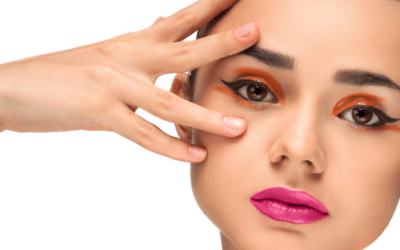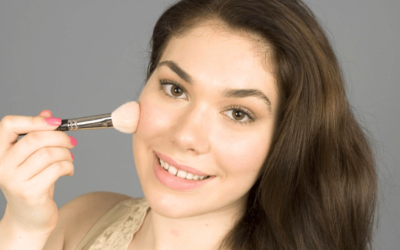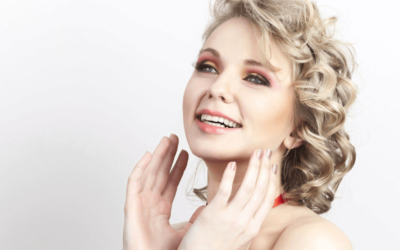Have you ever caught a glimpse of yourself in the mirror, only to be surprised by an unexpected and rather unwelcome shade of orange on your face? Don’t worry; you’re not alone in this puzzling phenomenon.
This article is here to delve into the science, causes, and solutions behind the enigma of why your face might suddenly appear orange.
So, let’s embark on a journey through the realms of skin pigmentation, diet, health, and even a touch of self-tanner mishaps.
Understanding Skin Pigmentation and Color Variations
The Canvas of Skin: Melanin and Its Role
To comprehend why your face could appear orange, we must first explore the intricate world of melanin – the pigment responsible for the color of our skin, hair, and eyes.
Melanin comes in various forms and concentrations, dictating the vast range of skin tones across the world. Melanin acts as nature’s paintbrush, determining whether our skin is fair, olive, tan, or deep brown.
The Curious Case of Carotenemia
One of the prime reasons behind the orange hue on your face could be attributed to a condition called carotenemia.
This occurs when an excess of carotenoids – naturally occurring pigments found in fruits and vegetables like carrots, sweet potatoes, and spinach – builds up in your bloodstream.
As a result, the accumulated carotenoids might lend a golden or orange tint to your skin, especially in areas where the skin is thinner, like your face and palms.
The Culprits: Factors Leading to Orange Facial Tones
Overindulgence in Carotenoid-Rich Foods
Before you blame the carrots for your sudden citrusy appearance, consider your diet. Consuming an excessive amount of carotenoid-rich foods can indeed lead to carotenemia.
While these foods are incredibly nutritious, moderation is key. Gobbling down large quantities of carrots or indulging in a mountain of sweet potatoes might tip the scales from a healthy glow to an orangey blush.
Underlying Medical Conditions
Sometimes, an orange facial tone could be a signal of an underlying health issue. Certain medical conditions, like hypothyroidism and diabetes, can contribute to changes in skin coloration.
These conditions affect the way your body processes nutrients and can influence the deposition of pigments, leading to unusual color variations.
Self-Tanner Misadventures
In the quest for a sun-kissed appearance, many turn to self-tanning products. However, if not used with caution, these products can turn your skin into a canvas of unexpected shades.
Self-tanner mishaps are a notorious cause of orange faces. Uneven application, failure to exfoliate properly, or using a product with too much DHA (dihydroxyacetone) can all result in a less-than-flattering, overly orange outcome.
The Quest for Solutions: How to Get Rid of the Orange Hue
Balancing Your Diet
If your orange facial hue is indeed attributed to carotenemia, fret not – there’s a solution right in your kitchen. Adjusting your diet to include a variety of non-carotenoid-rich foods can help restore your skin’s natural color.
Opt for a well-rounded mix of proteins, grains, and healthy fats to balance out the carotenoid overload.
Consulting a Healthcare Professional
If the orange tone persists or is accompanied by other unusual symptoms, it’s wise to seek advice from a medical professional.
A doctor can diagnose any underlying health issues that might be contributing to the color change and provide tailored guidance on how to address them.
Fixing Self-Tanner Blunders
If your orange facial mishap is the result of a self-tanner gone rogue, don’t worry – it’s not permanent. To even out the color, gently exfoliate your skin to fade the self-tanner.
You can also use lemon juice, which acts as a natural bleaching agent, to lighten the tint. If all else fails, time will be your ally as the self-tanner gradually fades away.
Embracing Your Skin’s Natural Palette
In a world where appearance plays a significant role, it’s essential to remember that your skin is uniquely yours.
While an orange face might cause a brief moment of concern, it’s a reminder of the fascinating interplay of pigments, nutrients, and health within your body.
Whether your skin tone is a result of a balanced diet, a self-tanner experiment, or a medical condition, embracing your skin’s palette is a celebration of your individuality.
















